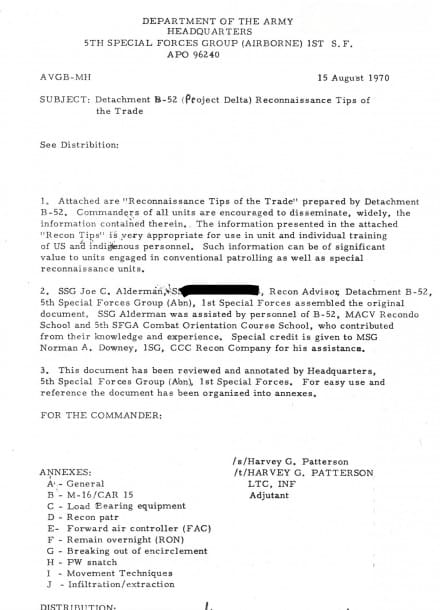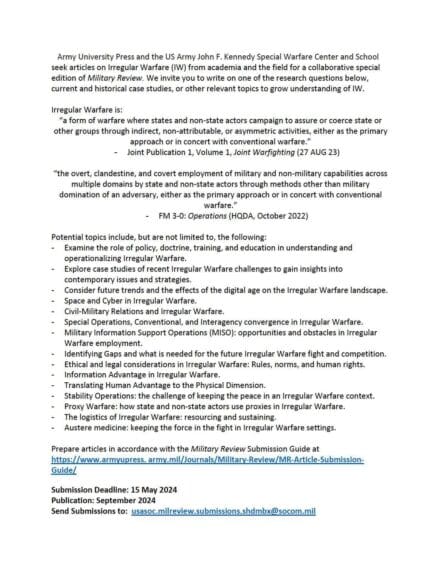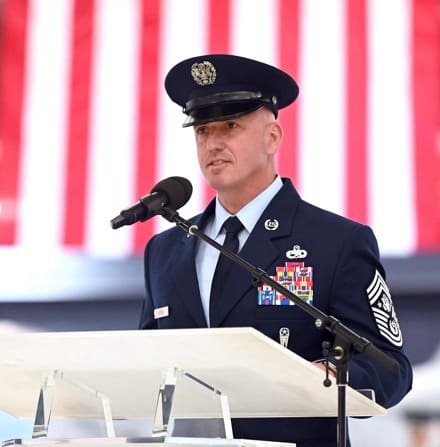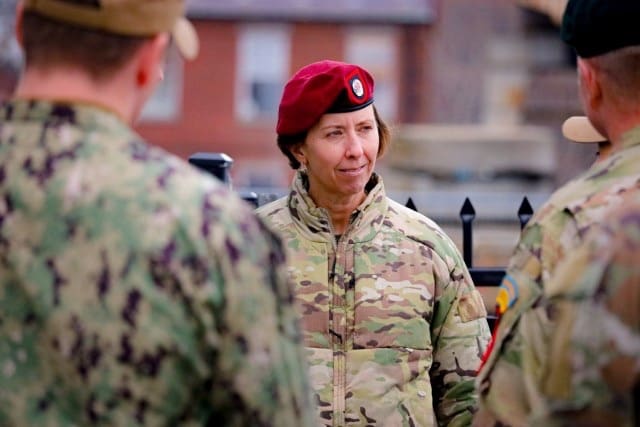
WASHINGTON — Command Sgt. Maj. JoAnn Naumann, the senior enlisted leader at Army Special Operations Command, says good leadership traits are taught by good mentors, handed down from one generation of NCOs to the next.
Such a philosophy is part of what ultimately led Naumann to stay in the Army for the last 28 years instead of pursuing her initial dream of becoming a Foreign Service officer.
Naumann enlisted in the Army in 1996 after earning a dual-major degree in American Studies and Government from the College of William and Mary. She wanted to go to the Defense Language Institute to learn Arabic.
“I had a plan to learn another language and to get a clearance … and get some experience to increase my likelihood of being hired by the Foreign Service,” she said.
She didn’t seek a commission because she had no intention of staying in the Army.
When she finished language training, however, the Army threw her a curveball, assigning her to the 101st Airborne Division (Air Assault).
“I had never in my life considered the fact that when I joined the Army as an Arabic linguist that I might go to a light infantry division. But that’s where I wound up,” she said.
She completed Air Assault School and training as a rappel master. Then she went to the Basic Airborne Course and the Military Freefall School for parachuting.
Naumann discovered that she enjoyed being in an infantry division. She enjoyed the Army.
“I feel really fortunate to have had amazing leaders in my time at the 101st, who made me really understand what I could do in the Army and how to be a good leader, and how the Army just takes care of people and feels like a family,” she said.
“More than anything, it was the leaders that made me want to stay in the Army,” she said.
As a sergeant at age 25, Naumann was NCO of the Year in the 101st Division.
“I was the only woman competing. I saw that I could compete with the men, and I did it the same way that I approached my job,” she said.
She knew there were some events that she couldn’t win.
“I just made sure I won every event I could win, and then I just held my own…”
Naumann can trace that attitude back to her youth, when she ran cross country and track in high school.
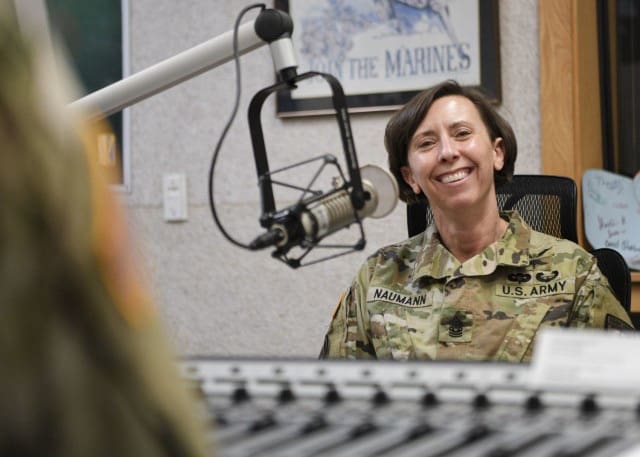
“I was never the most talented runner on the team. I was probably always the runner most willing to suffer on the team. The way I would break other runners is by being more willing to be in pain at the end of a race than other people were, and I think it’s that kind of attitude that just has allowed me to succeed,” she said.
Recruited by Special Operations Command in 2001, Naumann faced a dilemma in the aftermath of 9/11 when she was a staff sergeant and squad leader.
“I felt like I couldn’t leave my squad. It would be their first time going into combat, and I didn’t feel like I could let them go without me,” she recalls.
She sought guidance from division Command Sgt. Maj. Clifford West.
“He looked at me and all he said to me was, ‘Sergeant, if you’ve done your job, they don’t need you.’”
After SOC training, Naumann had assignments to special mission units and completed 14 deployments throughout Central Command and Africa Command.
In those years after 9/11, being a female Arabic translator paid off.
“It made me far less of a threat … being underestimated is a superpower,” she said.
Naumann said she never sought a job or promotion to be a trailblazer and doesn’t really think of herself as one.
She thinks she developed her drive, in part, from her mother, who retired as the pilot of a Boeing 747 after years in the cockpit.
“I never realized that it made a difference to me,” Naumann said, but being the daughter of such a professional meant that no one told her women couldn’t succeed.
“It never was in my head that I couldn’t do whatever job I wanted to do, because no one ever told me that there were things girls didn’t do. And so, I just didn’t hesitate to do things that I wanted to do,” she said.
She said people often thank her for advancing career possibilities in the Army, whether it is because she is a woman or because she rose in the ranks from a non-traditional specialty.
“If me being here makes other people see that they have the same possibilities, then I’m glad that it does,” she said.
For anyone, she said, the biggest challenge is convincing yourself to try.
“Everyone has challenges, right? These [Army] programs are not easy for anyone,” she said.
Naumann said there were certainly times when people told her she could not do a job because she was female.
When confronting that attitude, she would respond, “I graduated from the same course you did. So, tell me again, why I can’t do that job?”
She demanded better reasons why a woman could not grow and advance in the Army.
“It turns out there weren’t better reasons. So, I pushed until I got the opportunities I thought I should have. That’s my personality,” she said.
That is also reminiscent of how she ran track and cross country.
“I’m still not going to be the best at everything,” she added.
There are times when she relies on others to help out.
“I focus the majority of my energy on the things that I singularly can do,” she said.
People can often succeed if they make others be the ones to say ‘no,’ she explained.
“Sometimes we talk ourselves out of doing things,” Naumann said. We say “I’m not going to try it because I don’t know if I’m going to make it, I don’t know if I’m good enough. I don’t know if I’m smart enough, or strong enough. I don’t know if I’ll do a good job.”
Her message? Don’t sell yourself short.
Naumann says the best moments of her career are likely when she has held a promotion board and been able to reward someone who worked hard and stayed out of trouble and earned advancement.
“That’s the moment, when you tell them: ‘Congratulations, I’m recommending you for promotion.’”
By Jonathan Austin, Army News Service


